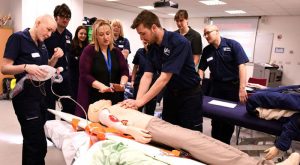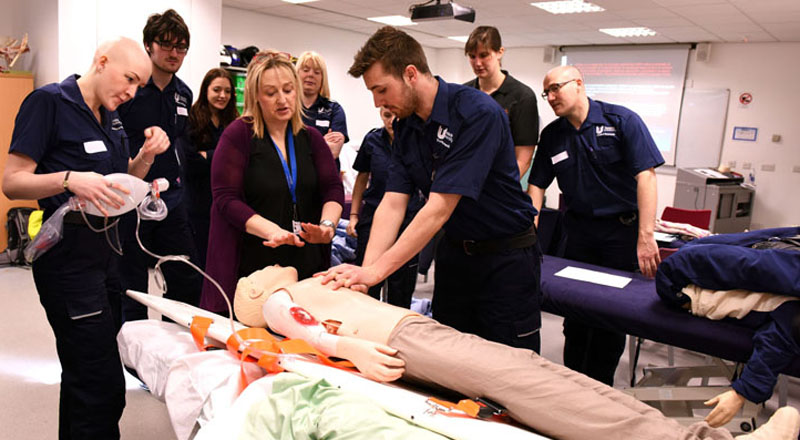
Teesside University’s BSc (Hons) Paramedic Practice degree is unique in that it offers an entry-level qualification for students who do not necessarily have any prior experience of paramedic work. It has been developed as a professional qualification to provide for the future needs of the paramedic profession, allowing graduates to pursue their career as paramedics in organisations across the NHS.
The degree, which welcomed its first students on 2014, was developed to reflect a growing desire for a more academic approach and a broader skills base in paramedic training. This three-year course therefore not only considers trauma and critical emergencies but takes a more holistic approach, looking at the many different arenas in which a 21st century paramedic needs to work including GP surgeries and emergency departments.
During the course, students spend time on placements in GP surgeries and hospitals as well as ambulances to learn the core skills of how to assess, manage, treat and refer patients. They also learn how to make decisions such as whether a patient can remain at home or be sent to hospital or referred to another healthcare professional in the community to continue their care at home.
In Short:
- The degree was developed by stakeholders including NHS employers, current practitioners and the College of Paramedics.
- All graduates will be eligible for registration with the Health and Care Professions Council, the professional regulator for paramedics.
- Teesside University’s School of Health & Social Care has equipped classrooms with state-of-the-art equipment, including a fully equipped ambulance.
- 50 students per year study on the degree course.
Programme Leader Mark Nevins said: ‘We’ve worked closely with the regulatory body and wider professional partners to develop a degree which will prepare paramedics who are fit for the future needs of the profession.
‘Skills training is, naturally, very important and trauma training still plays a key role but with more care being required to be delivered at home and the increased demands on Emergency Departments our students are getting the broadest based experience to meet those challenges ahead.
‘However, with this degree we also wanted to look at the theory of being a paramedic and explore professional issues such as care and compassion and putting the service users first.’

